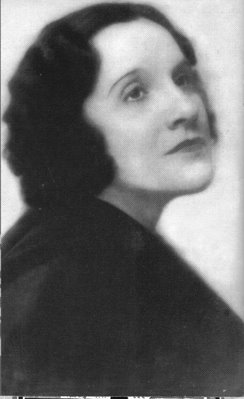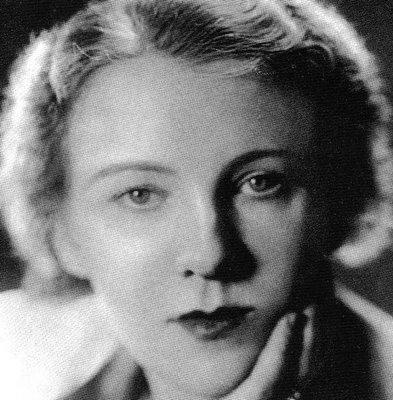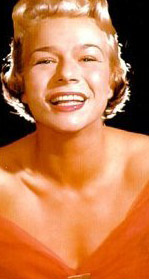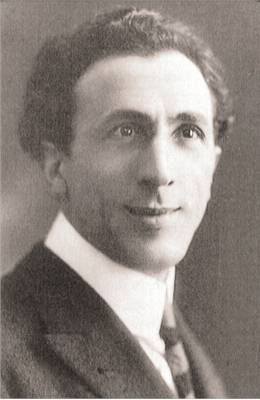Not really hidden, but treasures nonetheless
I have been wanting to post some more sound files of some singers. I have been putting off sketches and snippets of three singers that I have discovered not so long ago and that I really want to share. Proselytizing just comes in the genes, I guess.
But before I do that (and God knows when I will get around to doing that), I wanted to put up sound clips of a few of the singers that I mentioned in my last post.
But before I do that (and God knows when I will get around to doing that), I wanted to put up sound clips of a few of the singers that I mentioned in my last post.

First, Ninon Vallin, whom I find to be the quintessential French singer. She is well-known enough that I need not say too much about her. Her recordings of Louise and Werther with Georges Thill are definitive. She sings one of the most subtle thrilling renditions of the Falla "Siete cancionces popular espanolas" ever. No matter what she sings, she does it with such discipline and taste, such a flavor for the language and the style and such personal charisma that it is impossible to resist her. To me, she is in the Conchita Supervia mold, yet without that curious vibrato that is off-putting to so many listeners. Of Vallin is simply impossible to pick one selection, and yet, having to do so, I choose her "Dis-moi que je suis belle", the Mirror Aria from Thaïs.

Another singer who has made an enormous impression on me, but is not nearly as well-known as Vallin, is Friedel Beckmann. She was born in 1904 and had a provincial career in the German houses (Münster, Königsberg, Duisburg, Kiel) before arriving in 1938 at the Deutsches Opernhaus Berlin. I have done a little online research, but I have no information on how long she lived. She was particularly celebrated for her Orfeo and her Carmen, and evidently sang a good number of soprano roles as well, including Tatyana, Elisabeth in Tannhäuser, Sieglinde and Giorgetta in Il tabarro (!). (Again, shades of Christa Ludwig, with whom she shares a certain plangent vocal quality, though Ludwig sang the Färberin, Leonore in Fidelio, the Marschallin, and a few Ariadnes, none of the soprano roles that Beckmann did.)
I simply adore this singer. Her most famous recording is probably a complete Matthäus-Passion under Günther Ramin from 1941 (with Lemnitz, Erb and Hüsch), as well as a Pfitzner song, "Ist der Himmel darum im Lenz so blau". I have heard parts of the Matthew Passion, and they do not sit so comfortably on our ears. The Pfitzner is exquisite; indeed, it is the first recording of hers that I ever heard, which convinced me of her extraordinary artistry in less than three minutes. But today I post one of her soprano assumptions, "Die Kraft versagt" from Hermann Goetz's Die Wiederspenstigen Zähmung (The Taming of the Shrew).

I also promised a snippet from Liane, the wonderful cabaret singer from the fifties. Her full name was Liane Augustin. I am not sure of her nationality, since her French, English and German all seem to my ear to have a slight accent. She made many recordings with the quaintly-named Boheme Bar Trio which were released on Vanguard Records and reissued less than ten years ago but which have went out of print almost immediately and which are not so easy to find. Some of her most charming are songs of the great American popular song composers, Gershwin and Cole Porter. For Liane I am actually posting two songs, the first her rendition of Porter's "C'est Magnifique" and the second an odd little novelty song called "Hallo, wer ist dort an der Tür". It's as saucy and suggestive as the Porter is sophisticated and classy.
Amazingly, I just found a youtube clip of her, from the 1958 Eurovision competition singing a song called "Die ganze Welt braucht Liebe" ("The Whole World Needs Love"). The sound and video quality are beyond horrible, but you get a nice idea of her charm and élan.

As for Carmen Melis, I listened to her Tosca last night and found it not terribly special. Let me qualify that statement, her characterization and sense of style are irreproachable, but the voice itself is rather shrill, though it is a good remastering. The extraordinary singer on this set is Apollo Granforte as Scarpia. I must post something of his performance here, and I have chosen the "Te Deum", though it is hardly my favorite Puccini moment. You can hear the way that his electric singing perfectly characterizes the animal intensity of this character. He is truly one of the great baritones. But don't get me started on baritones... Hugo Hasslo, Pavel Lisitsian, Giuseppe de Luca. That'll have to wait a while.
Labels: boheme bar trio, friedel beckmann, granforte, liane, liane augustin, ninon vallin, tosca

2 Comments:
That YouTube clip of the Eurovision Song Contest illustrates what a metamorphosis that competition has undergone over the past 50 years. Estonia hosted Eurovision while I was living there and I attended -- but the contest was much more about spectacle, and much less about music than the contests of yore. That said, I love Eurovision. What self-respecting gay male wouldn't?
Oh, while I was staying in Europe in the mid-nineties, I saw two Eurovision competitions on television. I agree that it is a phenomenon unique unto itself. These Pick-a-new-star-out-of-a-bucket sorts of competitions really can't compare. And remember: two big winners in previous years were ABBA for "Waterloo" and the prepubescent Celine Dion for "Ne partez pas sans moi"!!
Post a Comment
<< Home